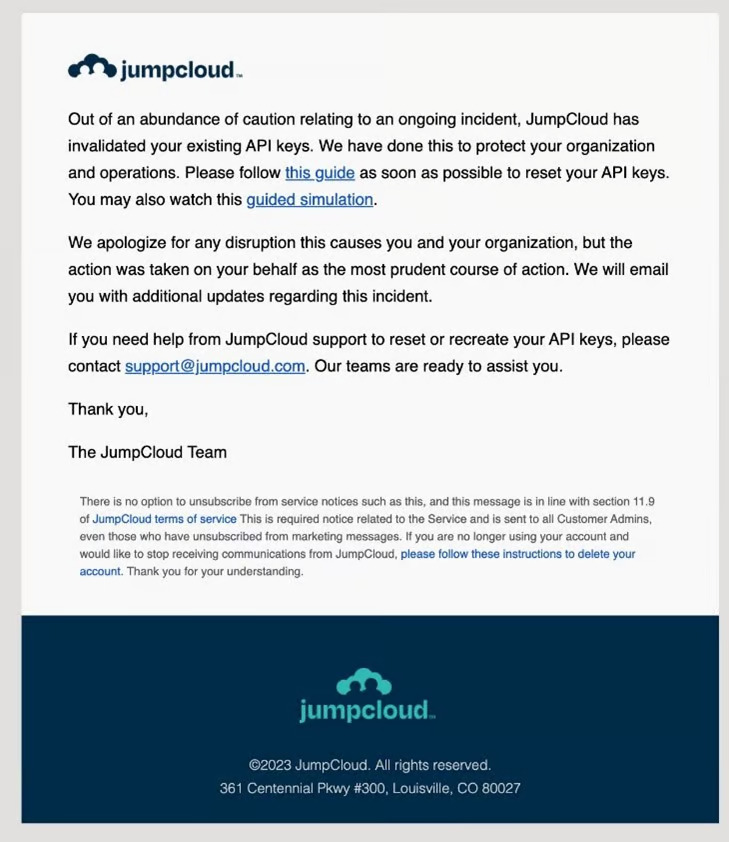In July 2023, JumpCloud, a well-known directory-as-a-service provider, made headlines by invalidating all administrator API keys in response to a suspected security breach. This move, impacted thousands of organizations globally, signalled the seriousness of the threat, later attributed to nation-state actors. The incident serves as a reminder of the vulnerabilities in API-based systems and the increasing sophistication of cyber threats targeting such platforms.
What Went Wrong?
JumpCloud detected unusual activity within its infrastructure, prompting a thorough investigation. While the company refrained from initially disclosing detailed specifics, it invalidated all admin API keys, citing an “abundance of caution” to protect customer organizations from potential compromise. The reset affected integrations reliant on these keys, such as HR systems, directory synchronizations, and custom applications.

Later updates revealed that the breach involved nation-state actors, further elevating its severity. The attackers exploited the API environment, targeting the “commands framework,” a feature used by a subset of JumpCloud customers. This approach likely enabled the actors to access sensitive customer data.
JumpCloud Response
- JumpCloud required all administrators to regenerate and reconfigure their API keys. This step disrupted services dependent on existing integrations, including directory syncs and third-party automation.
- The company implemented additional safeguards, advising customers to review activity logs, rotate credentials, and update API configurations to mitigate potential exploitation risks.
- JumpCloud worked closely with affected customers, sharing updates and recommendations to contain the threat
Impact
- Operational Disruption – The invalidation of API keys forced organizations to act rapidly to update their configurations. Many reported downtimes as they reconfigured automated processes reliant on JumpCloud’s services.
- Reputational Risk – While JumpCloud acted swiftly, the breach raised questions about API security protocols, particularly within cloud-based platforms that serve as critical infrastructure for businesses.
Lessons Learned
API Security – Organizations must adopt robust API security practices, including:
- Implementing the least privilege access controls.
- Regularly rotating API keys and enforcing multi-factor authentication (MFA).
- Monitoring API activity for unusual behavior patterns.
Proactive Incident Response Strategies – This incident underscores the need for proactive incident response strategies, including:
- Maintaining updated integration documentation to minimize downtime during credential resets.
- Performing regular penetration testing on API endpoints.
Transparency in Communication – JumpCloud’s approach to resetting all admin keys and promptly notifying customers demonstrated a commitment to mitigating risks despite operational challenges.
Conclusion
The JumpCloud incident highlights an expanding scope of modern cyber threats. Nation-state actors are increasingly focusing on attacking critical infrastructure, such as identity management platforms, which serve as a base for organizational security.
This incident not only impacted JumpCloud’s clients, but it also demonstrated the cascading consequences that a breach in one system may have on others.
